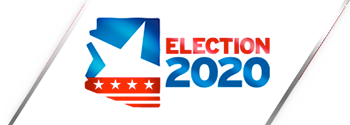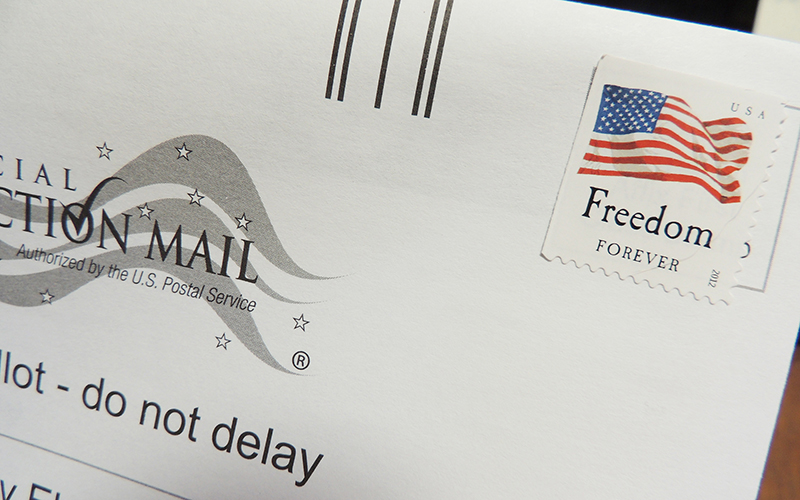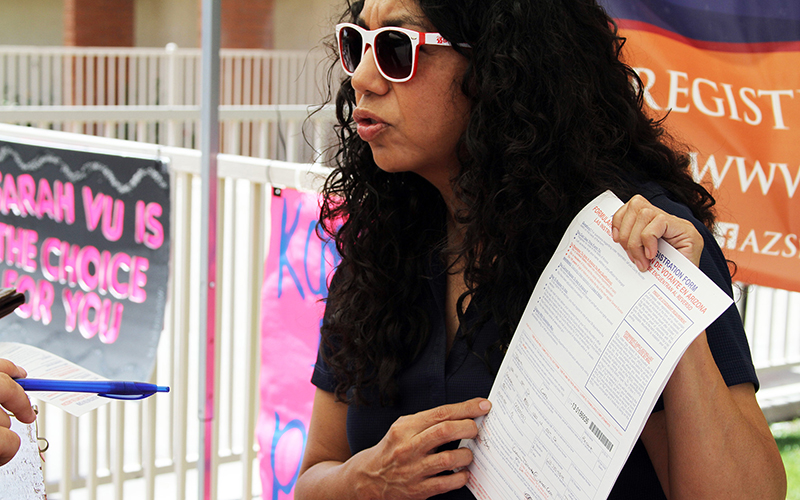WASHINGTON – A federal appeals court Tuesday temporarily blocked a lower court ruling that would have given Arizona voters five days past Election Day to fix early ballots that were accidentally filed without a signature.
The ruling by a three-judge panel of the 9th U.S. Circuit Court of Appeals means current law stands – for now – and any unsigned ballots not corrected by 7 p.m. on Election Day will be discarded.
The circuit court Tuesday said that, with less than a month to Election Day, the public interest is best served by keeping current election laws instead of “sending the State scrambling to implement and to administer a new procedure for curing unsigned ballots at the eleventh hour.”
The suit was filed in June by state and national Democrats who argued that state law gives voters five days to correct – or “cure” – mail-in ballots with mismatched signatures, but does not afford the same option for unsigned ballots.
The Democrats said the law harms the party by forcing it to put more resources into educating voters, especially those with limited English proficiency who might not understand ballot instructions.
Alexis Danneman, attorney for the Democrats, said in the June complaint that the rule tossing unsigned ballots also “burdens and disenfranchises the very voters the ADP (Arizona Democratic Party) seeks to support.” She said 2,209 unsigned ballots were thrown out in the 2016 general election in Maricopa County alone.
U.S. District Judge Douglas Rayes agreed in a Sept. 10 ruling that ordered the state to allow a five-day correction period.
Rayes said the Election Day deadline for curing an unsigned ballot posed “minimal but unjustifiable burdens on the right to vote … particularly for voters who return their ballots too close to Election Day to receive adequate pre-election notice of a missing signature.”
He denied the state’s request to stay his order during an appeal.
But the circuit court Tuesday called the current deadline reasonable and said it imposes, at most, a “minimal” burden on the right to vote. It also said the deadline helps the state administer a complicated election process in an orderly way. Rayes’ requirement that the state allow for an extension for unsigned ballots would increase the state’s administrative burden, especially so close to Election Day, the appeals court said.
In response to Democrats’ challenge that the state “treats missing signatures arbitrarily different from mismatched signatures,” the panel said the different treatment is reasonable, citing the state’s defense: When an official questions a signature, it’s a subjective decision that merits redress, but when a voter fails to sign their ballot altogether, it’s completely the voter’s fault.
Because the state is likely to succeed in its defense of the law, the circuit court said a stay was in order. It also noted that the Supreme Court has repeatedly halted attempts to change voting laws in the months leading up to elections.
Requests for comment Tuesday from the Arizona Secretary of State’s office were not immediately returned.
The stay does not overturn Rayes’ ruling but means the law will stand – at least until there’s a full court hearing. For that to happen before Election Day, one of the parties would have to request to expedite the process, something neither party had done by Tuesday, according to the 9th Circuit clerk’s office.
 Want more on the 2020 elections? Cronkite News, Arizona PBS and Indian Country Today have teamed up to bring you comprehensive election coverage. Click here for more.
Want more on the 2020 elections? Cronkite News, Arizona PBS and Indian Country Today have teamed up to bring you comprehensive election coverage. Click here for more.


